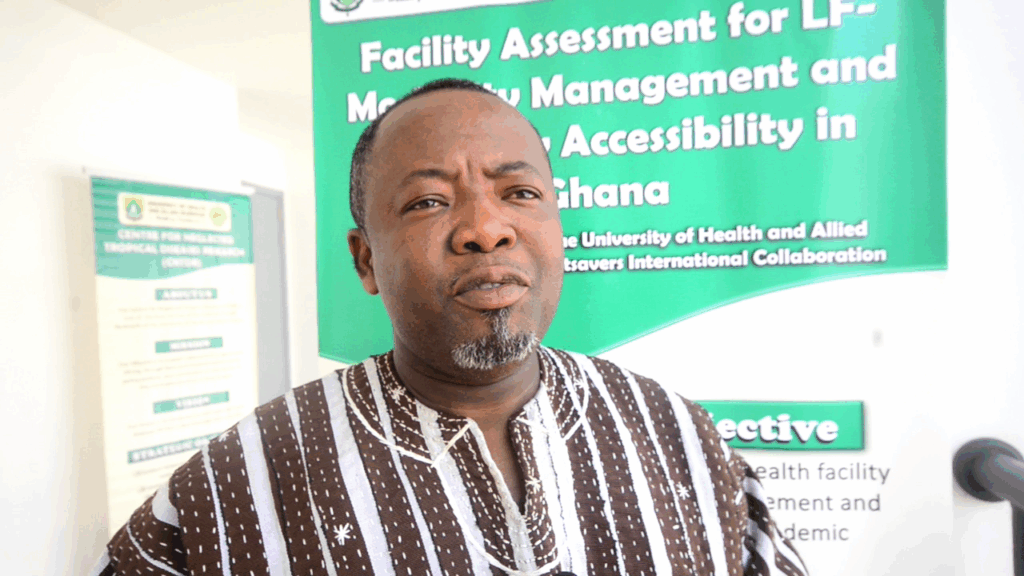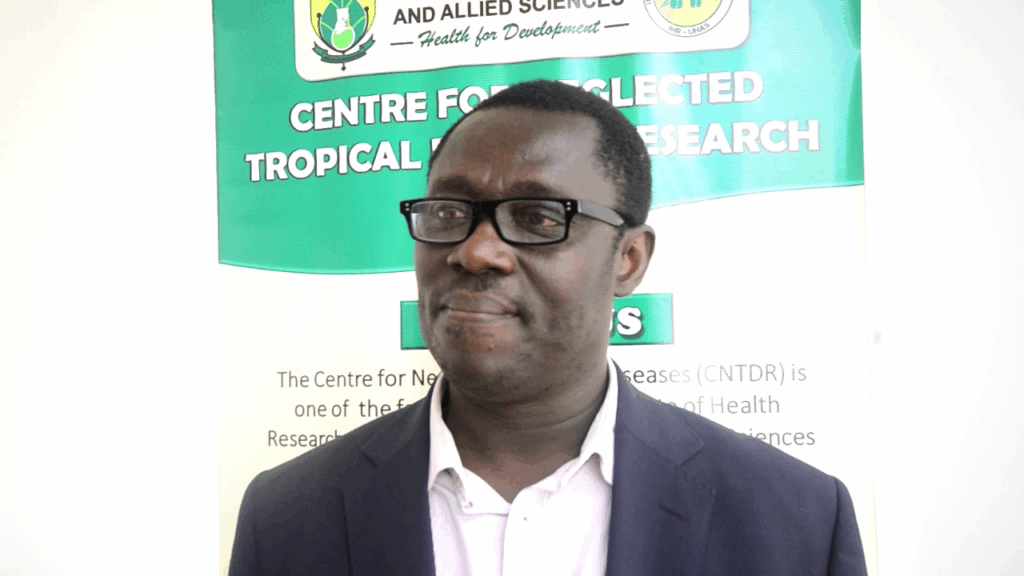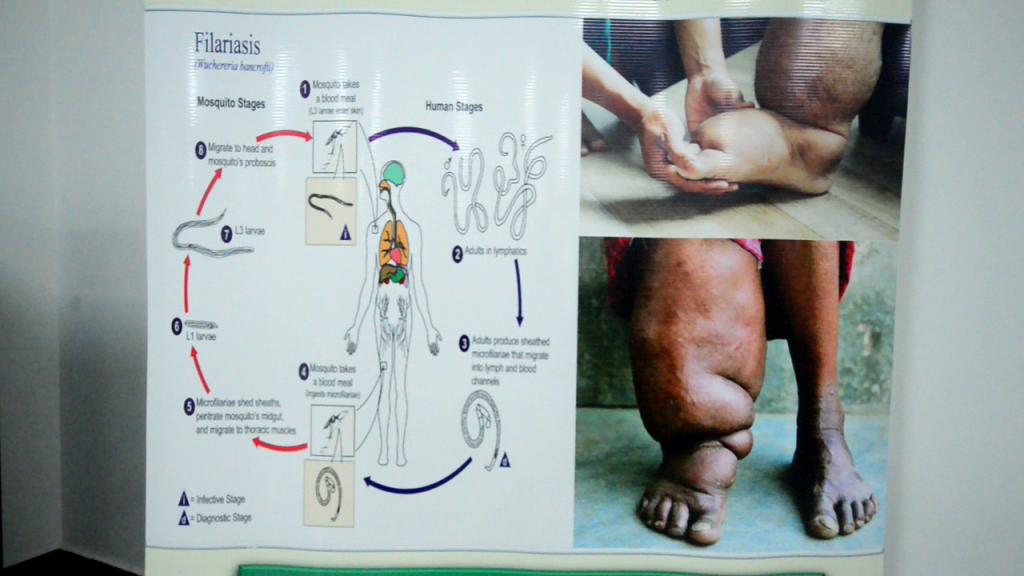Over the years, there have been concerted efforts to eliminate and manage the aftereffects of neglected tropical diseases globally.
A project launched by the University of Health and Allied Sciences (UHAS) has injected a new spirit into the quest targeted at eliminating neglected tropical disease, Lymphatic Filariasis (LF).
The Lymphatic Filariasis (LF) Morbidity Management Project would be implemented in partnership with Sightsavers International and the Ghana Health Service.
The project would birth an integrated health facility assessment tool to inject hydrocele and lymphoedema services into health care.
It also seeks to identify gaps in financing, workforce, and supply inputs, thereby enhancing primary health care functions.
The Director of the Centre for Neglected Tropical Diseases Research of UHAS, Dr Alfred Kwesi Manyeh, explained that the project seeks to develop and integrate LF morbidity management into routine health care.
He added that it would also focus on finding better management modules for the aftermath of the diseases, which is permanent disability, where persons who had suffered the disease suffer swollen legs and become immobile.

“Even if the transmission of the disease has been interrupted, the disability is there. We can’t prevent it, except for the hydrocele, where they can conduct surgeries to be able to drain the fluid in the scrotum for them to be free.”
“If they have elephantiasis, that is almost permanent. So, we have to find a way of managing their conditions for them,” he said.
He disclosed that studies would be conducted on managing the mental health of patients with neglected tropical diseases to fight stigma and its associated factors.
“We are having another study that we want to integrate into the management of the disease and the mental health of people who are affected by the disease so that we can provide this holistic service to people who are affected by the disease,” he explained.
The Head of the Institute of Research at UHAS, Prof. Kwame Ohene Buabeng, lamented the ravaging effects of the disease, including societal and health effects.
“This is the condition that we call elephantiasis, which leads to very severe disability, and it is very, very difficult for the individuals who have the problem and their family members. Sometimes, it even comes with some level of stigma.

“It is called elephantiasis because the leg then begins to look like an elephant, and there are other complications,” he said.
He believes the initiative under the lead of UHAS, which seeks to enhance the healthcare system in dealing with such neglected diseases, would enhance public health across the globe.
“If we bring in interventions, solutions and medications, which can address it, I think we have gone a long way to solve one of the key healthcare issues in the country, which many people do not really commit resources to, that is why we call it neglected tropical diseases,” Prof Buabeng explained.
The Head of Portfolio, NTD of Sightsavers International, Dr Richard Selby, said his organisation brings on board its expertise in the field of research to help UHAS identify the best modules to achieve the objectives of the project.
He said his institution would play the role in data collection, among other vital details needed to conduct comprehensive and effective research.
He said the details would feed into developing assessment tools for health centres and identifying areas for improving accessibility and treatment capabilities, “demonstrating whether a combined approach is viable for wider uptake. Both in Ghana and within other LF endemic nations, 72 nations.”
Lymphatic Filariasis is a neglected tropical disease affecting about 120 million people worldwide. LF has debilitating effects on humans and leads to morbidity and sometimes irreversible disability.
It is transmitted through mosquito bites.
DISCLAIMER: The Views, Comments, Opinions, Contributions and Statements made by Readers and Contributors on this platform do not necessarily represent the views or policy of Multimedia Group Limited.
DISCLAIMER: The Views, Comments, Opinions, Contributions and Statements made by Readers and Contributors on this platform do not necessarily represent the views or policy of Multimedia Group Limited.


